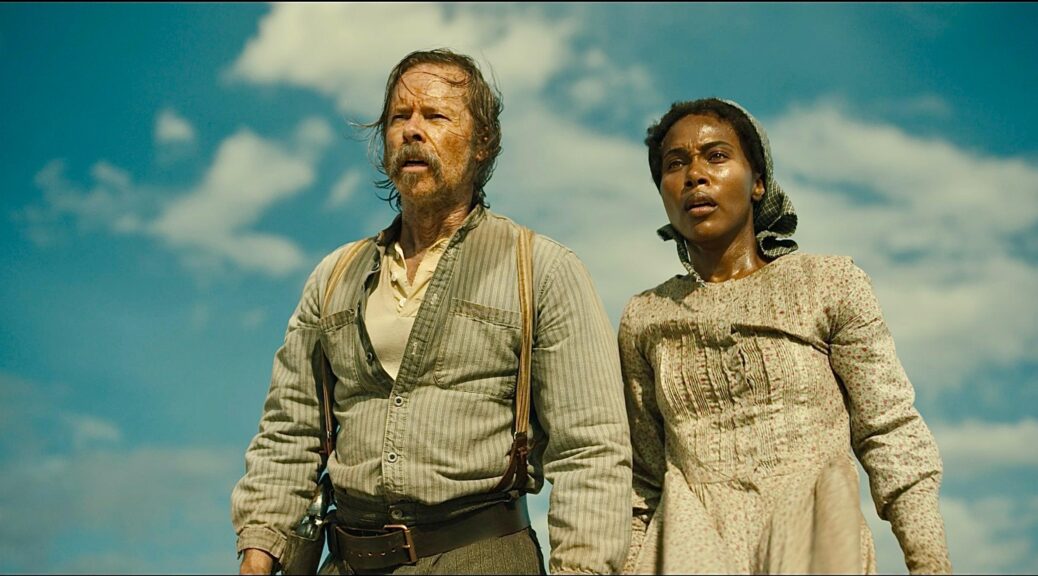Killing Faith
by Hope Madden
A raucous opening sequence eventually settles into a classic old Western vibe that keeps you guessing in Ned Crowley’s latest, Killing Faith.
Like Mary Bee Cuddy in The Homesman and Joanna in News of the World, Sarah (DeWanda Wise) is in need of a traveling companion. Her daughter (Emily Ford) needs help that the town doctor (Guy Pearce) can’t offer. Not that the ether-sniffing doc has been much help to his patients of late.
Dr. Steelbender is an ether addict on account of a plague of sorts. Voiceover tells us of a sickness ravaging the countryside almost as savagely as a notorious group of bounty hunters. But Sarah is determined to take her daughter to see Dr. Ross (Bill Pullman) because he deals not just in medicine, but in holy healing.
Crowley’s shot making, particularly in the opening act, is equal parts stunning and unnerving. At his best, he tells the tale like a picture book, images sharing as much of the story as dialog. There’s a grim poetry to the shots that creates an beautifully brutal atmosphere as it delivers information.
Pearce has made a lot of movies, many of them horrible, most mediocre, but he does have a pretty good track record with Westerns. John Hillcoat’s The Proposition is one of the most affecting Westerns of the 21st century. Killing Faith doesn’t nearly reach that high water mark, but it has its moments.
I like the more contemporary Westerns, where no one’s to be trusted and everyone’s a weirdo. Killing Faith is at its most compelling when our little band of travelers finds themselves among unexplained carnage or unexplainable fellow wayfarers. Joanna Cassidy is especially delightful in a macabre way.
But a couple of obvious turns and the general simplicity of the story keep Killing Faith from reaching classic status.
The film loses steam whenever it clings too tightly to its main themes, its hero’s journey. But Crowley elevates that well-worn road with ideas of being haunted by the sight of innocence corrupted, something that connects the Western with dystopian tales, like John Hillcoat’s other Pearce-starring fable, The Road.
All Westerns are about redemption. The best Westerns, new or old, are about hope. Can you allow yourself a flicker of hope? The answer is often what differentiates the classic Western from the contemporary one. Killing Faith toys with those mighty big struggles, sometimes provocatively. The solutions aren’t as interesting as the journey, though.



